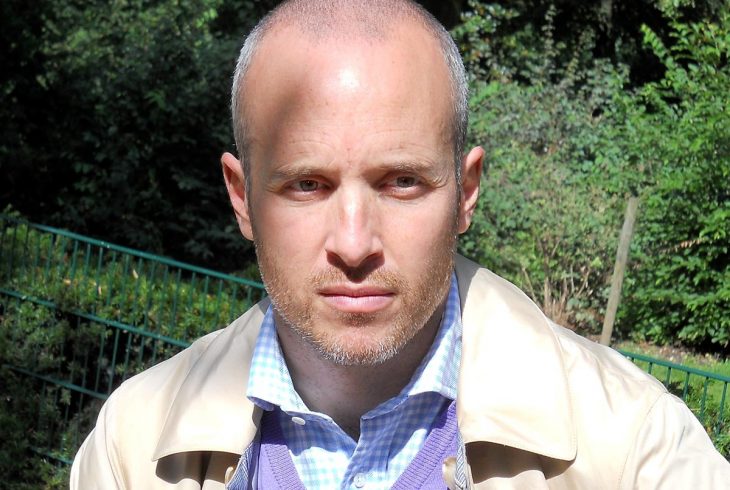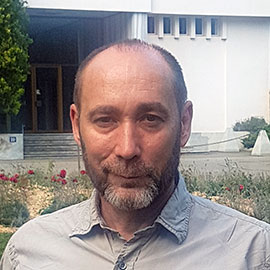JUSTICEINFO.NET IN-DEPTH INTERVIEWS
Mark Freeman
Executive Director of the Institute for Integrated Transitions (IFIT)
From June 2014 to December 2015, Mark Freeman was one of two independent experts hired by the Colombian government delegation to advise them on transitional justice issues during the peace talks with the Revolutionary Armed Forces of Colombia (FARC). He tells us some of the inside story of the peace negotiation and analyses the momentous process of justice that is now underway in Colombia. Freeman further shares sharp and thought-provoking views on the damaging misunderstandings of amnesties, and how transitional justice tools may be helpful to engage some of the most reviled and violent groups today, such as Jihadists and organized crime.
PART 1 – Colombia and the Farc
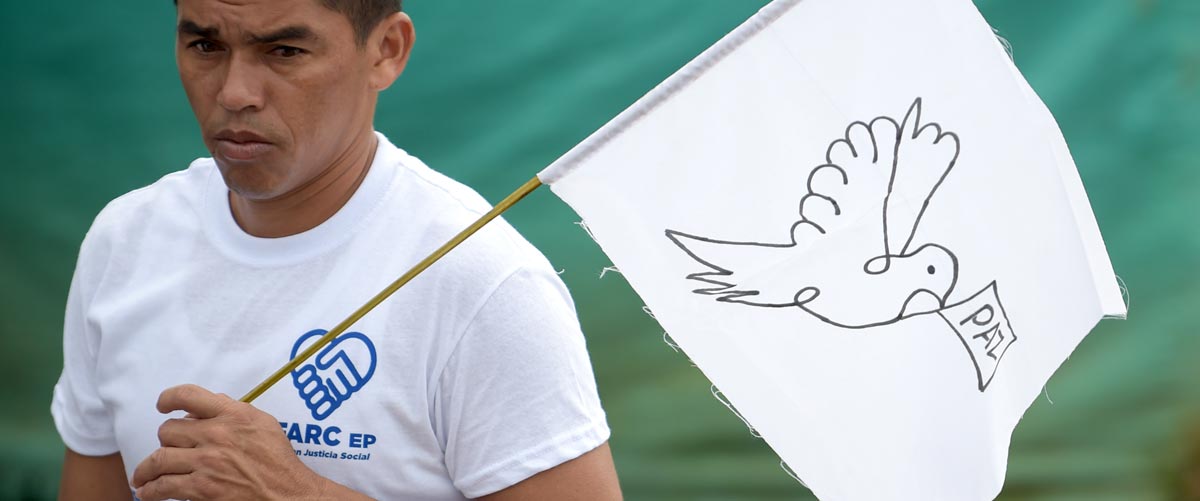
JUSTICEINFO.NET: Your role in the Colombian peace talks in Cuba came to an end when, in December 2015, the full chapter on victims (i.e. transitional justice) was published. This subject turned out to be the hardest part of the peace negotiation. What was it that each party feared most?
MARK FREEMAN: Both parties knew that it was going to be the hardest issue. They actually referred to it as the nucleo duro, "the hard nut to crack". The chapter on victims is deliberately vague: it doesn’t refer to justice, it doesn’t refer to transitional justice. It just says “victims”, and it has two bullets underneath it: human rights and truth.
You would imagine from the outside that the biggest difficulty would be the government trying to convince the FARC why they have to accept criminal punishment and sanctions. And, of course, that was one of the issues. But the biggest surprise to anyone who might have arrived from Mars and landed into the negotiation was that, to a large degree, the hardest negotiation was inside of each delegation rather than across the delegations. Let me give you an example. If we break down the mechanisms, the FARC was quite in favor of a truth commission. The government had to take account of the interests of the armed forces – a 500,000 strong, very powerful institution in the country – and what created more anxiety for the state agents was the truth commission. Think about what a truth commission does: it makes findings on institutional responsibility. And so the military assessed that they had a lot to lose and not a lot to gain from a truth commission. That meant a very intensive talk within Bogota, not just inside the delegation.
On justice and reparations, I think the FARC had a lot more to fear. Their political project was to transform into a non-armed political party and the prospect of criminal punishment, quite logically, would not be good for their political careers, and not good for [their] image and brand. So they had to fight very hard. On reparations, the government delegation emphasized, quite rightly, the great achievements and economic sacrifices of its citizens. One per cent of the gross national product goes to victims in this gigantic reparations program that has been in place since 2011, in which the state provides reparations to victims of any criminal act. So the question was: what would the FARC contribute to the reparations, morally but also in finance.
Colombia is arguably the most extraordinary transitional justice process in the world at the moment. What is it that makes it so unique?
We can’t understand the way transitional justice looks in Colombia without understanding, and appreciating, that it comes out of a negotiation.
One part of it is that it is a transitional justice deal that is the result of a negotiation. That’s important in its own right. We can’t understand the way that it looks without understanding, and appreciating, that it comes out of a negotiation. It is important not only to understand the limits of what we can expect from it but, also because you have to understand that the transitional justice deal is directly, structurally connected to other elements. For example, criminal sanctions can’t be understood in isolation from the larger transitional justice package but also can’t be understood in isolation from the disarmament process: they have to disarm as a condition for getting the potential benefits, the reduced sentences, the legal leniency that this deal offers. It also has to do with political participation: if they confess or if they are found to be guilty of certain actions, that affects their ability to participate politically. This is not transitional justice as an isolated strategy.
A third element is one of the things that characterizes Colombia: for better and for worse, they can’t do anything without being extremely ambitious. I don’t mean to say they’re not realistic, but they push themselves to the limits. They have this expression that they use: “We are more papist than the Pope.” I say this because it’s one of the strengths but also one of the great challenges of this process.
This is not the first chapter of the story of transitional justice in Colombia. They had this very robust process, the Peace and Justice Law, that involved something like a truth commission, plea-bargaining schemes, victim reparations. So we’ve got this huge system: a fifty-year conflict that a truth commission is supposed to investigate; this gigantic structure with five or six different bodies, just within the justice component, which also involves an amnesty granting body, an initial chamber that receives confessions, etc.; a new scheme of reparations that builds on the existing one, which has individual and collective components, symbolic acknowledgment and material benefits ; and a chapter on guarantees of non-repetition. And this is all constructed on top of this whole other system still operating.
Isn’t it a recipe for disaster?
It’s a recipe for a lot of disappointment. It’s going to disappoint but it’s always going to deliver certain things as well. The truth commission will carry out its work although it’s probably going to be in a constant battle with the new government. This extraordinary justice mechanism called the “JEP” in Spanish [Special Jurisdiction for Peace] has its own job to do and has to interact with the ordinary justice system, and with the truth commission; and they’re going to deliver something, and there will be trials. But it’s going to do far less that what it was intended to do, because of this almost cultural proclivity towards ambition.
What’s the most promising or attractive aspect of the whole process?
There are some critical decisions that the justice system and the truth commission have to take now that will define if they can be something promising or something certain to disappoint.
I am hesitating because there are some critical decisions, strategic or tactical, that each of these bodies, in particular the JEP and the truth commission, have to take now that will define if they can be something promising or something certain to disappoint or fall apart. The truth commission [is facing] a new government that is, generally speaking, hostile to what has been negotiated. But truth commissions have the opportunity to surprise people, to disrupt those expectations. You have an extraordinary chair who could potentially orient this commission more towards dialogue and reconciliation rather than a kind of blaming exercise. The truth commission is going to be irrelevant or positively disruptive.
The same thing is true of the tribunal. It is in the first stage of this process, which is almost the equivalent of a truth commission. The tribunal is receiving confessions and it is going to produce a report saying: here are the cases we think should be investigated, the ones which should be amnestied, and the ones we just leave alone. So are they going to spend the next ten years going over tens of thousands of cases in the pursuit of the perfect transitional justice or are they going to be very clever and balanced in terms of what they do? It could be promising or it could be a disaster. You can’t say just yet.
Whether they manage to attract some people to come forward and confess is the critical dimension. Many things made South Africa powerful, but one of the most important ones, I believe, was the emotional power, the raw power, of seeing people come forward publicly, confess in detail and confront their victims. The confrontation of victims won’t happen in Colombia and I don’t think it needs to, but if people come forward and participate and confess in honorable ways, it could be important. My fear would be that Colombia falls back into a kind of legalistic, maximalist tradition that also afflicted the Justice and Peace process. What’s unviable is the sheer complexity of it. If it were to be implemented to the letter it would be a disaster. It’s mission impossible. It’s too maximalist.
Moving from being a transitional justice expert working from the outside to the real-life, practical need of achieving peace, what major lessons did you draw from the negotiation process?
What you’re negotiating is peace. This is not a transitional justice deal; it’s a peace deal which has transitional justice components.
I would go back to how absolutely different transitional justice is when it needs to be negotiated versus when it can be declared. It’s fundamental. You cannot understand negotiating transitional justice unless your analytic starting point is the fact of negotiation itself and all the constraints and implications that it has – mutual concessions, the fact that you are making deals with the leaders of an enemy side, and that it all has to be reduced to a written agreement – and that whatever you negotiate in this arena, it is subservient: what you’re negotiating is peace. This is not a transitional justice deal; it’s a peace deal that has transitional justice components. If you don’t understand that, you don’t understand anything.
Many people have emphasized the difference between transitional justice after dictatorship and transitional justice after a civil war. And I agree this is a relevant distinction. But I don’t think those are the things that necessarily lead you to have to come up with more nuanced concessions or balancing acts. It is when you have to negotiate the end of a civil war or dictatorship. Why did Rwanda’s forays into transitional justice look the way they did? Because they didn’t have to negotiate with anybody. It doesn’t mean they didn't have challenges and constraints but we’re not a world in which all wars and all dictatorships end through elections or public revolts or resignations or the death of leaders. That’s not how all civil wars and dictatorships end. Chile has more to teach Colombia in terms of transitional justice than any place where there was no need to negotiate political settlement or a peace deal. That is the most important story. It has transformed my understanding of what makes amnesty and transitional justice look so different in some places than others: it’s how the transition came about.
It’s not intellectually honest to say that you believe that a particular conflict should end through a negotiated deal and then have all these “red lines” on justice. It’s not serious.
It’s not intellectually honest to say that you believe that a particular conflict should end through a negotiated deal and then have all these “red lines” on justice. It’s not serious. You can have values, you can have principles, you can advocate. But if you are saying you believe in a negotiated solution as a way to end this conflict or this dictatorship, then you have to adjust. You can’t on the one hand say this seriously, and on the other hand declare in the most unrealistic, and I think undignified ways, that justice must look the same for a negotiated process as it would if there was no negotiation.
And that’s effectively what lots of human rights actors say. Some are simply ignorant and don’t understand that. But most are intellectually dishonest. It’s like the whole debate on peace and justice. It’s not that the goals are irreconcilable. It is that if peace must be negotiated, that has direct implications in terms of the kind of justice that is possible. Any other argument is not worth listening to. You have to understand what negotiation means. Justice is not what you’re negotiating; you’re negotiating a political or peace settlement and [justice] is one component, a subsidiary component, of a larger process.
PART 2 – Rehabilitating Amnesties
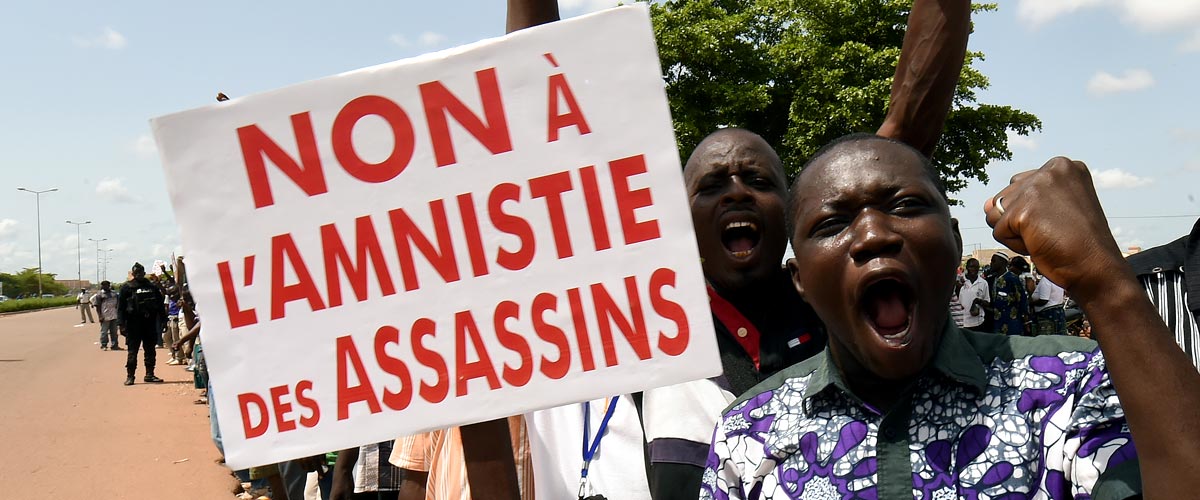
You may be the most prominent expert on amnesties, which is the least understood and most despised transitional justice tool.
It’s radioactive.
Can you tell us why is it so and why it shouldn’t be?
An amnesty is an exception to the ordinary application of law. The discomfort generally has to do with this: we are knowingly making an exception to the rule. The rule is that you obey the law and if you fail to obey there shall be consequences. And an amnesty is like the big eraser. But amnesties when it comes to atrocities, that’s a question people struggle with because we have to ask ourselves whether some things are ultimately unforgivable. It’s profoundly discomforting, morally and intellectually, to actually think that, ultimately, every act can be forgiven in law, no matter what act. That’s a terrible thought. And the only thing that can allow us to live with that horrendous idea – that every kind of act, no matter how atrocious, gruesome and barbaric, the law can forgive it under some circumstances – is where there is some greater good that is being served. Most of the time that greater good has to do with prevention, with ending, halting a situation where these atrocities continue, or are likely to continue.
Think of it like this: the topic is atrocities, not amnesty. And some people – I include myself in this group – are comfortable with the idea that since the topic is atrocities we can accept the price that in order to end atrocities we have to forgive atrocities that have already occurred. There’s a whole other group of people that are prepared to see atrocities continue because their abhorrence of the idea of forgiving through law certain atrocities is so great. They will argue that if we forgive them there will be a never-ending cycle of atrocities. But we have to all be intellectually honest about this. For me, where [this group] ceases to be intellectually honest is when they fail to say: I am prepared to see atrocities continue. They won’t say it but that is the direct logical consequence of their position. And I don’t accept that.
The dominant position, however, at the United Nations and among major human rights organizations is a “no amnesty” principle, isn’t it?
No amnesty for the worst atrocities. They will tell you: we have no problem with amnesty but the cut-off point is war crimes, genocide, crimes against humanity – and some will also say, like the U.N., gross human rights violations. I can look at it, sit down, and say: Ok, I share your abhorrence with the idea that there could be amnesty for such things, so what should we do in the context of a negotiation that is going on in Central African Republic? Can we end the war? Can we stop atrocities with your policies, yes or no?
The United Nations has been almost irrelevant ever since it has adopted this ideological position on amnesties.
Frankly, why is the United Nations almost irrelevant for the last twenty years, ever since it has adopted this ideological position on amnesties, which doesn’t have an exception for negotiations? Under no circumstances, will the U.N. ever – ever – endorse any deal, any law, that would enshrine legal impunity or forgiveness for past atrocities. Never.
But in reality amnesties or conditional amnesties are constantly offered ; they are just called something different
I think it’s worse. We get the agreement on paper that says there will be no amnesty for these things, and then there actually ends up being no transitional justice of any kind. South Sudan reached the most beautiful agreement in 2015: there will not be amnesty for these crimes, there will be a tribunal, there will be a truth commission. This is what the South Sudanese felt that they had to agree in order to get international aid to continue. But what you get is those fictions.
What's worse is that it has created misunderstandings in the diplomatic community about what international law actually allows and what it doesn’t allow. Diplomats believe now that they can’t sign deals unless they have these clauses. So, rather than law and transitional justice being enablers of deals, they are now just another obstacle that has to be overcome. Essentially it has eliminated nuance and eliminated any relevance of the United Nations as a broker of deals. Because only the weakest parties that agree to have no plans to implement will have the U.N. involved. The U.N. is not involved in any negotiation or mediation in a serious way anymore. They were not involved in Colombia, not until the very end and not on this issue. They’ve condemned themselves to a certain irrelevance.
But it’s worse than that. It has the effect of preventing the negotiation from getting started in the first place because parties, dictators, war criminals think that they will never get anything close to an amnesty so they just keep going. Whereas in reality if the position had some nuance to it – which the law allows –, and if it wasn’t so ideological, we would see more talks begin. Sadly, the legal fears that all these parties have are causing them more and more to hold on to power because they think that the international community will never give them some legal leniency – where, in fact, as you say, it will!
We sacrifice conflict resolution possibilities because of an unnecessarily rigid and absolutist position on amnesty.
It’s made the generation of dialogues and negotiations much more difficult and in some cases, I think, almost impossible. So we sacrifice conflict resolution possibilities because of an unnecessarily rigid and absolutist position on amnesty. And effectively it means let the atrocities continue, let the dictators remain in power, let the warlords remain in power. It’s a very serious problem.
You can have preconditions to getting an amnesty: it can be individualized, it can be conditional on disclosing certain criminal acts, on disarmament, on non-recidivism, it can be so that if you commit certain violations or actions you lose the amnesty. You can do all kinds of clever things. But we don’t get to discuss those things, because for atrocities there is nothing to discuss.
PART 3 – Jihadists and Mafias: On the Frontiers of Transitional Justice
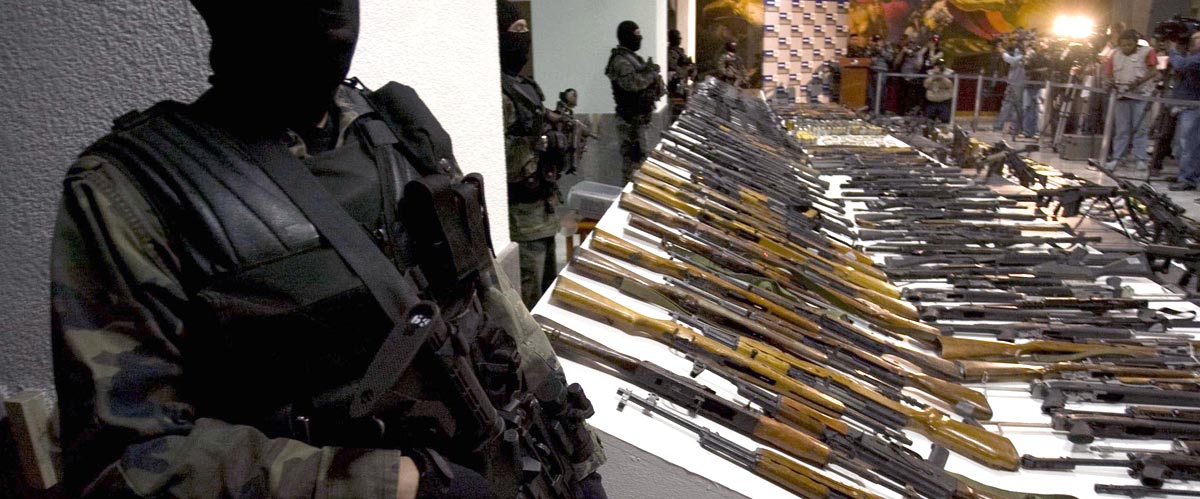
More recently, you’ve worked on what may be called the frontier of transitional justice: trying to understand how transitional justice tools could be used in negotiating with the most reviled and violent groups, such as religious extremists or even organized crime, gangs. What are your initial thoughts and findings on this?
We accept negotiating with groups like the IRA [Irish Revolutionary Army], the ANC [African National Congress], the FARC, because we can imagine, as the endgame of the negotiation, that those groups have the capacity to transform, on the institutional level, into something that the society can coexist with. As we push further out into the frontiers of different kinds of non-state groups such as Jihadist groups and organized crime, the endgame is much harder to see. It’s extremely remote to imagine Jihadist groups, given their nature, their ideological motivation at the leadership level, their self-identity, their operations and their transnational nature, that they could transform into something that the society could coexist with. There is political Islam; Boko Haram is negotiating with the Nigerian government; the Taliban is negotiating with the Afghan government. But it’s one step further. Before we can even talk about transitional justice, what we have to confront is that if we are unable to overcome Jihadism through coercive, military and judicial techniques, the question is: what other options do we have?
The idea of negotiating with the mafia is even more unacceptable than with ISIS. Again the question is: Can we solve it through purely coercive techniques?
The second kind of group, organized crime, is even further out on the frontier, which is surprising because you might say people might detest ISIS more than they detest the Mafia. Maybe. But the idea of negotiating with the mafia is even more unacceptable to them than with ISIS. Again the question is: what do we do about organized crime? Can we solve it through purely coercive techniques? I think the mature policy response has to be that we have to take seriously the idea of the possibility of negotiation. What can and can’t wisely and realistically be negotiated with such groups? So it is a frontier, but it shouldn’t be such a stretch to say that we can and should negotiate with these groups. But we need a paradigm that fits these groups, and we also need to develop the policy analysis and justification to think of how to do so wisely.
And you’re saying that tools and experience of transitional justice can be helpful?
That’s exactly right. At its best transitional justice is a zone of creative policy-making in a context of dramatic constraints, as a way to respond to atrocities. We need to draw upon fields that have produced creative solutions, balanced solutions in the face of dramatic constraints in response to atrocities.
Here there doesn’t seem to be any “transition” involved any longer. Should it still be called “transitional justice”?
I think this is where we come full circle. It has to do with the misunderstanding of transitional justice, which is not a field that applies once a transition is underway. Look at Colombia: there was no post-conflict transitional justice until it could be negotiated. Transitional justice is also the things that you negotiate that would be part of a future transition. It is transitional justice when you’re negotiating, not only when you’re implementing, and not only when the transition is there but rather when you’re building the architecture of the transitional justice.
I began as a transitional justice specialist. That was my passion. I studied it, I practiced it. But negotiation has helped me understand transitional justice better. I realized that what fascinated me in transitional justice was never the justice part but the possibilities of transition which sometimes required negotiation to bring about. That has been my personal discovery.
Interviewed by Thierry Cruvellier, JusticeInfo.net.
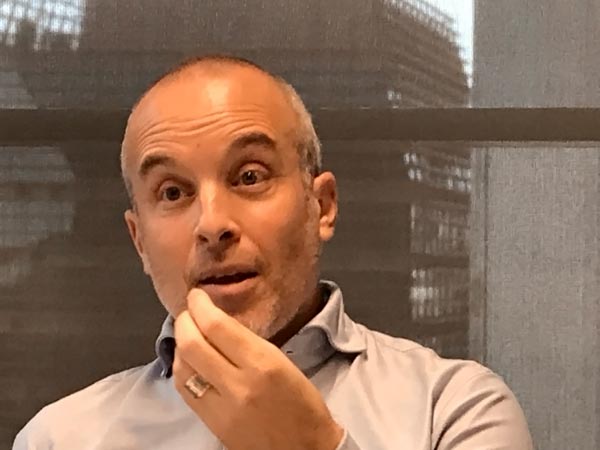
MARK FREEMAN
A Belgian and Canadian citizen, Mark Freeman helped launch and direct the International Center for Transitional Justice (ICTJ) in New York and Brussels. He was the Chief of External Relations at the International Crisis Group before he founded the Institute for Integrated Transitions (IFIT), based in Barcelona. He is the author of two books on amnesties and on truth commissions. His new book, Negotiating Transitional Justice, is expected to be published next year.


